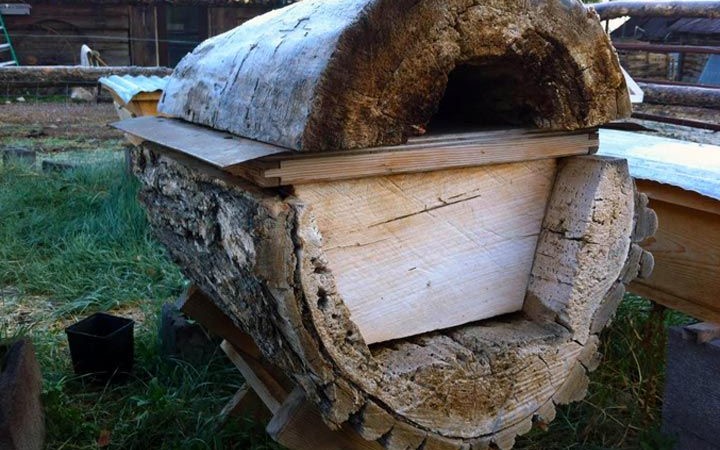

The prospect of making money normally comes with New Year’s resolutions. Keeping bees comes in as a viable option for people keen to make this dream come true.
Anyii, a former sub-county chief of Ngetta, who left his job to concentrate on apiary on his Taf Assured Mixed Farm, in 2013 says beekeeping is a rewarding venture worth every attention.
He says that the activity comparatively requires low investment. Yet the basic requirements are beehives, protective clothing and a few simple tools, especially for harvesting.
“Anyone can keep bees because there is no daily routine of feeding or medication yet the rewards are immense,” he says.
Starting out
The National Agricultural Advisory Services (Naads), popularised beekeeping in the early 2000s by giving free hives, which increased the interest in apiary, especially in northern Uganda.
Anyii, who was also a beneficiary of the support when Naads gave him five local beehives before he got another in 2011.
Ideally, according to Uganda Investment Authority’s assessment, investing in this business on a large scale requires you to have a starting capital of about Shs26.6m. This will involve purchasing three acres of land where to place the beehives, 50 beehives, a centrifuge machine, smoker pumps, protective wears, buckets and filtering sieves plus hive tools.
With this kind of investment, one will be assured of a revenue potential of at least Shs37m per year and a profit margin of 73 per cent. The expected payback period is seven months. In case you buy honey in bulk from the producers, process, pack and brand it for the market, you would need a starting capital of about Shs155,000.
Equipment
But Anyii prefers the lower end. According to Honey Centre in Kampala, the basics include a bee suit (veil and overall) that cost about Shs180,000, gloves of Shs30,000, gumboots estimated at Shs25,000, a smoker, which comes in handy at harvest time, which goes for Shs40,000 as well as hive tools and bee brushes, which are available for a combined Shs40,000.
Langstroth bee hive which are among the most popular, go for Shs220,000. Yet there are cheaper options like KTB at Shs100,000 and the traditional palm tree hives at Shs60,000. The activity is suitable in areas where land may not be fertile enough for farming activities especially, the semi-arid areas.
It is an activity that also saves a lot of space. Anyii has 200 beehives in a space of about two acres.
Honey production potential is enormous in Uganda, estimated at 500,000 metric tonnes per year, but this potential has not yet been fully exploited. The Ugandan Beekeepers Association estimates that only between 800-1200 metric tonnes of honey is produced per year due to current lack of bee-stock.
The many uses
Traditionally, bees are harvested for their honey. Yet Anyii emphasises that other products are paying well. He says that beewax is important in industries. He harvests propolis, a resinous material collected by bees from leaves and buds of certain trees, which is used to cover cracks in their hives.
This product has several pharmacological properties; for instance, it is used in preparations to treat some skin diseases, and research on other uses is going forward. It is also marketable abroad. He sells a small dosage at Shs5,000 and he claims it helps prevent colds but a kilo goes for Shs150,000. He has set his eyes on harvesting bee venom (apitoxin) which science has found to be useful in the treatment of arthritis. He has modified the beehives which he sells at Shs80,000 at the farm.
Value addition
Anyii stresses that adding value to honey is the missing link. But he suggests starting with basics. Anyii argues that simple processing tools like a 50kg food grade stainless steel settling tank can be obtained for Shs1,600,000 while stick candle moulds are Shs150,000. Honey jars which can be branded go for Shs900 each for a 500gm type while squeeze bottles that can contain 300gm are available for Shs800. “Processing attracts more value.
For instance, unprocessed honey weighing one kilo can be sold at less than Shs10,000 yet the same value goes for double that price,” Anyii reasons. He encourages farmers to form groups to be able to process the honey because an individual may be overloaded with the financial demands.
Market
Anyii says that the market for honey and its products is overwhelming.
“I cannot think of exporting at the moment because the market in Uganda is still huge,” he says.
Yet there is an increasing health conscious people who prefer honey over sugar.
#Daily Monitor
Next Reading
More about the Kidding process
Knowing how to handle a kidding Doe and new kids can put a young goat […]
Previous Reading
Breeding problems in Rabbits
Rabbits have a high reproductive rate compared to other livestock. They become sexually mature within […]
 Contact Jaguza Support
Contact Jaguza Support